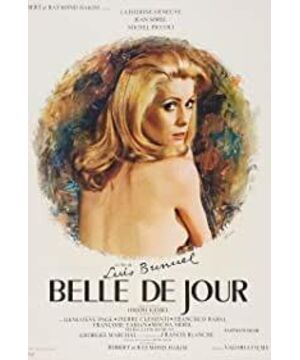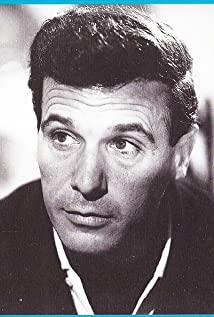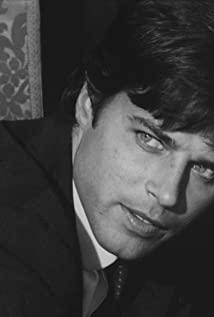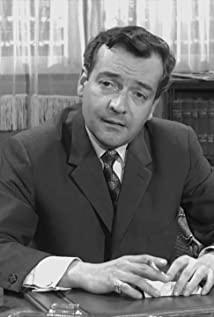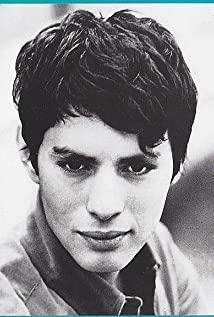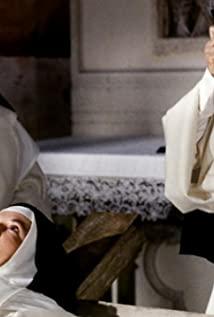To be honest, part of the plot is not fully understood, especially the interspersed dream and reality. Later, when I saw a film review, I felt that the interpretation was very popular. Take the excerpt and share it with the audience and friends who are as confused as me.
Excerpt:
Daydream of Desire-Watching the
cold outskirts of "Beauty of the Day" , a carriage accompanied by a bell from far to near, and Servier and Pierre, dressed in aristocratic costumes, linger in love in the car. At the same time, Pierre, like a different person, rudely ordered the coachman to drag Severi into the woods and whipped him. After that, Pierre said coldly and contemptuously to the coachman: "She is yours."... …
This is the first daydream, everything has just begun.
Severi and Pierre are a couple who have been married for one year. The husband Pierre is a gentleman. He is a doctor and earns money to support his family; while his wife Severy is doing nothing, drinking coffee and playing tennis, living a decent life. An empty petty bourgeoisie life. Gradually, the vulgar daily life made Seville tired, and her childhood molestation experience by men appeared in her memories from time to time. It was difficult for her to truly bond with her husband who loved her deeply. A kind of pursuit stimulus was produced in her subconscious mind. Desire. The subconsciousness that human beings are not aware of will be manifested in a certain way of disguise in dreams. Saiweili’s masochistic tendency is precisely her distorted psychology caused by persistent depression. She desires strong stimulation, which is also a gentle skin. El's bland life can't give her. In the eyes of outsiders, she is a well-dressed lady; beside her husband, she is a coquettish and willful little girl; however, no one knows that deep in Saiweili's heart, there is a "self" that she doesn't even know herself.
During the conversation with friends, Severi came across an underground brothel. Her inner desire seemed to have seen an outlet. Driven by inexplicable power, she hesitantly knocked on Mrs. Annes’ door and opened it. The door of own desire. The first customer was a wealthy and vulgar businessman, and his vulgarity made Severi experience unprecedented excitement and satisfaction. Since then. Saveli tears off the mask of a bourgeois noblewoman, becomes a prostitute who sells her flesh, and becomes a Parisian afternoon scene—"the beauty of the day."
In the desolate grassland, Pierre dressed as a farmer and his friend Hasen watched the horses and cows run by, and Saveli in a white skirt was tied to a pillar outside the barn. Pierre and Hasen threw the mud to her face and the snow-white skirt, screaming dirty words.
This is the second daydream, since then, she has fallen into the quagmire of desire.
Saiweili did not hesitate. The first time she came back from work, she burned her underwear, desperately trying to wash away the filth from Mrs. Annas, the above scene always appeared in her mind. The white skirt is a noble identity, and the sludge is a dirty desire. However, under the offensive of desire, reason is retreating steadily. Masochistic doctors, abused and fetish Asian businessmen, necrophilic dukes, Servéri are removed among all kinds of men, and perverted and distorted desires are obtained. A great satisfaction. She even walks with ease between dual identities: during the day as a lowly prostitute, a machine of desire, and after five o'clock, she is a dignified lady; while she obeys the moral standards and arrogantly refuses the love of her husband and friends, she puts aside all morals. Chasing crazy desires.
The appearance of Marcel broke the balance of the dual world. He is a desperado, cruel and tyrannical, but really fell in love with Severi. He learned the real name of "Beauty of the Day" and found her home. He tried to make her Completely break away from the mainstream society. And when the life of the noblewoman and the slut appeared contradictory, Servier wanted to get rid of Marcel. After all, people still use morality to suppress desire and self to suppress the self. Severi needs an outlet to vent her desires, but she doesn't think that is the normal state of her life.
Pierre and his friend Hasen started a duel, and Severi was tied to a book and watched the men fight for her. Pierre defeated Hasen and won Severi.
This was the third daydream, and she decided to return.
Saiweili's life as a prostitute was smashed by Hasson, which made her feel uneasy and did not know how to explain to her husband. The desperado Marcel shot a bullet at Pierre in order to recapture Severi. In the end, Marcel was killed by the police on the street, Pierre was severely injured and paralyzed, accompanied by a wheelchair. Since then, Saiweili has never had the strange dream of being abused by her husband again. Maybe her repressed and twisted desire has been satisfied as a "beauty of day", right? Perhaps in the future, Severi will completely end the dual identity and return to a life of ease and vulgarity.
Pierre got up from his wheelchair and embraced Severi to discuss his vacation plans. On the forest vagina outside the window, the carriage passed by with the bell...
Reality and dream are blurred at this moment...
"Every Beauty in the Day" is a Spanish surreal The classic work of the doctrine director Bunuel, the film embodies Freud's psychoanalytic theory and expresses a deep criticism of the alienation of human beings by the bourgeoisie.
According to Freud's theory, personality is divided into three structures: id, ego, and superego. The id is full of instincts and desires. It acts according to the principle of happiness, blindly pursuing satisfaction. Under normal circumstances, it is in a suppressed subconscious state. Everyone has evil and dirty desires. This has nothing to do with identity, status, and moral cultivation. Wei Li is happy to play "Beauty of the Day", from vulgar merchants to noble dukes, from gangsters to internationally renowned doctors. The film reveals the ugly desires of all kinds of people, and the underground brothel is the outlet of desire. The ego is in an intermediate position, representing rationality and wit. It mainly has a defensive function, suppressing the id and appropriately satisfying it. The superego acts according to the principle of perfection and is the supreme leader of personality, like the perfect image of Severi in social occasions. The subconscious cannot become conscious when a person is awake, but in a dream, it will go beyond the self's defense and sneak into the consciousness in the form of disguise. For example, Severi dreamed that she was tied up three times, indicating that her inner desires were constrained in reality; the characters in the dreams were tuxedos and high stockings, and they performed deviant behavior in the attire of an ancient gentleman and nobleman, representing people. In reality, the self, the superego, and the idiosyncrasy of the original desire are opposed; white clothes, mud, insults, and duels are all closely related to reality.
Human beings have desires, and they all need to vent their desires. In a superior social system, desire should be reasonably guided to vent, and transformed into a driving force for labor or artistic creation, and ultimately liberate mankind and obtain physical and mental freedom. From the director's point of view, the capitalist system alienates people into tools, and people are not free. For the proletarians at the bottom, capitalism alienates them as tools of production; for the bourgeoisie, either they follow hypocritical ethics and endure the spiritual repression of empty life, or they are alienated into tools of desire, stimulating and Sinking in pleasure. In the film, Saiweili and the clients are a tool relationship that uses each other: the clients use Saiweili to satisfy their perverted desires, and Saiweili also obtains physical and mental satisfaction from the clients. Marcel is a special character. His desperado status and Han Yan's clothes symbolize that he is a man with nothing. He wants to break this tool relationship and truly own Saiville, but in the end he dies on the street, so miserable. The desperate and helpless ending is meaningful.
The ending of the film is intriguing. There are two explanations for Pierre's "paralysis" and resurrection. One is that this is Severi’s fourth daydream. The dream represents her desire to return after a period of crazy years. In normal life, after all, "return" is also a subconscious desire, which can be reflected in dreams. First, Saiweili's previous experience was all dreamy. She did not go to be a prostitute, and her husband was not shot. Life was as usual, while Saiweili was just a mental derailment, a subconscious debauchery. Throughout the film, the contrast between dreams and reality, the interaction between the two promotes the development of the plot, but at the end, we cannot distinguish whether it is real or dreamy.
(From the blog of the subroutine of Sina MATRIX)
View more about Belle de Jour reviews


